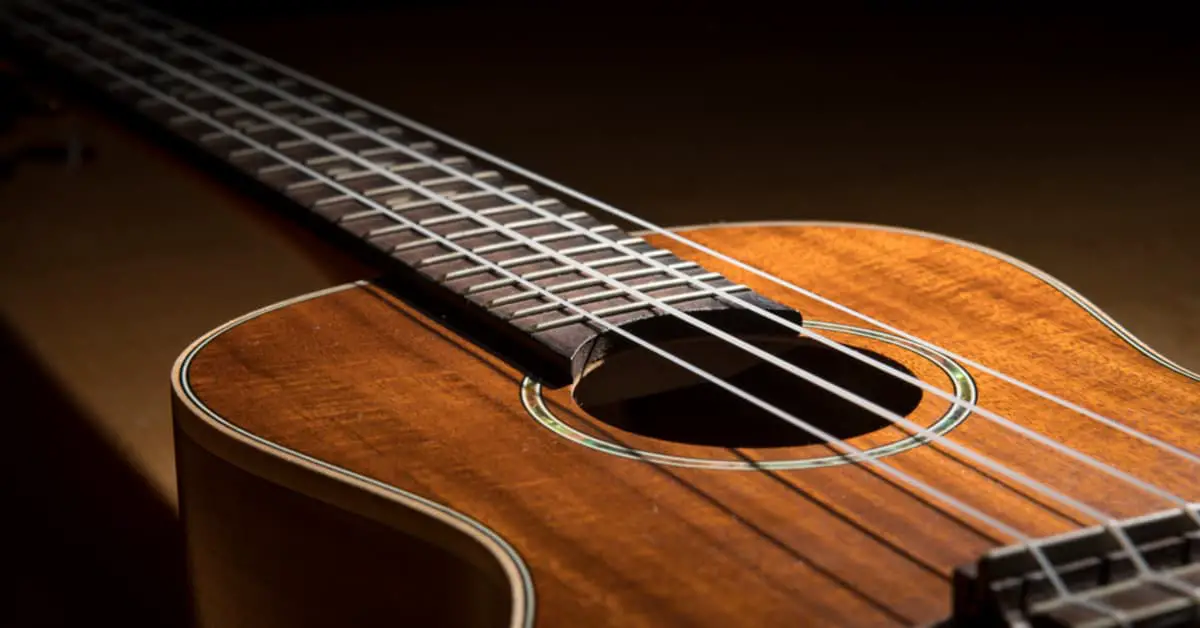Smaller guitars do sound different to bigger guitars as a result of their smaller guitar body a decreased scale, but this does not mean they sound worse.
Many people, myself included, do prefer the sound of a regular dreadnought full side guitar, but there is a growing movement of people who prefer to play smaller guitars.
Some people prefer the sound of a smaller guitar as they emphasise the mid and high range tones, whereas other people prefer the bass right tones that tend to come out of a full-size guitar body.
The different factors that influence a small guitar sound how are discussed and explored throughout the rest of this article.
Impact Of Smaller Guitar Scale On Guitar Sound
The scale of a guitar refers to the distance of the strings from the bridge to the nut of the guitar.
A guitar with a scale length of 30 inches will be significantly smaller than a guitar with a scale length of 30.5 inches.
A shorter scale impacts the guitars sound because a shorter scale equates to a shorter string length. Shorter string lengths have an effect on the strings’ vibrating frequency.
Impact of Guitar Body Size and Shape on Guitar Sound
The shape and size of a guitar body also have a significant impact on the sound a guitar makes.
When a guitar string is plucked the vibrations from that transfer through the guitar bridge to the soundboard, which then affects the air particles inside the body. These vibrating particles then come out of the soundhole in a focused manner.
At a high level, the bigger the guitar body is, the more air particles are affected and pushed through the soundhole and therefore the higher the volume of sound is created.
This different shape affects not only volume but also affects the nature of the sound that comes out.
The wider bodies tend to produce a deeper sound, with more of a bass and treble response, compared to smaller bodies which tend to produce a sound with more emphasis on the higher frequencies.
Impact of Wood On The Sound of a Small Guitar
The wood a guitar is made of also has a significant impact on the guitar sound.
If the small guitar is a cheap factory-produced instrument, it will sound very different from that of a small guitar with a rosewood soundboard for example.
For example, Sitka spruce is softer and produces a brighter tone while rosewood produces a darker sound.
How To Make a Small Guitar Sound Better
There are certain things about your guitar that you won’t be able to change, shape, scale, wood etc, but some things you can experiment with to see if it makes any difference.
The easiest thing to change that might produce a difference is the strings.
Given the shorter scale means the strings are not as tight as they would be on a full sie guitar (to produce an equivalent note), you can experiment with heavier strings to see if this changes the feel and sound your guitar makes.
FAQ’s
Do Smaller Guitars Sound Different?
Yes, smaller guitars do sound different to big guitars as a result of the shorter scale and different body shape.
This overall leads to a tone that has more emphasis on higher-end frequencies and less on the lower end bass type frequencies.
Does Size of Guitar Affect Sound?
There are two main ways in which the size of a guitar impacts the sound it makes. The scale of the guitar (distance between the bridge and nut) and the body shape and size. The shorter the scale, the less tension is on the strings, as they can achieve an equivalent tone with less tension due to the reduced length. And with a smaller guitar, they have a smaller soundboard, which makes fewer vibrations, which then has less impact of fewer particles in the smaller guitar body, creating less volume and a different type of sound as well.

